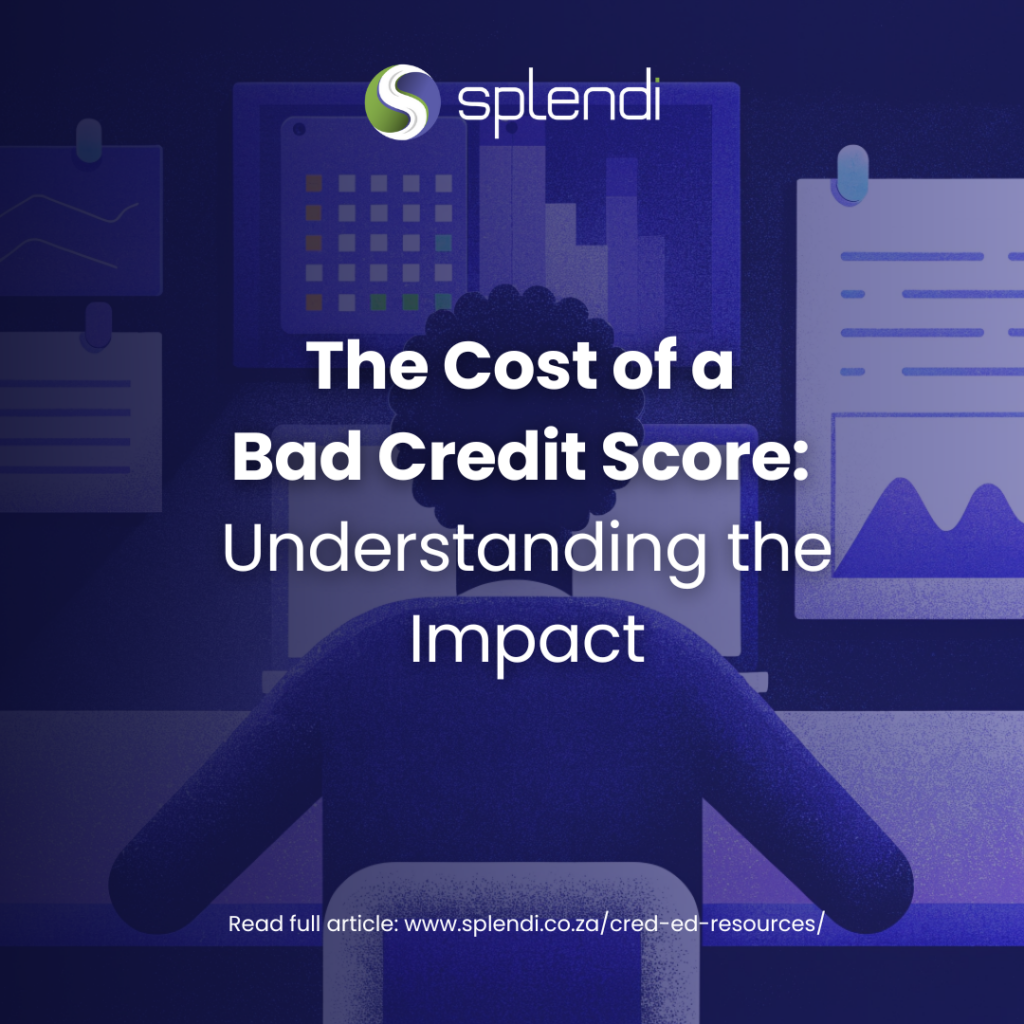A bad credit score can significantly hinder your financial opportunities and cost you more in the long run. While it might seem like just a number, your credit score affects various aspects of your financial life. Here, we break down the costs and provide scenarios to illustrate how a low credit score can impact you.
Higher Interest Rates on Loans
Why it matters: When you have a low credit score, lenders see you as a higher risk, leading them to charge higher interest rates to compensate for that risk.
Scenario: Imagine you’re applying for a home loan. With a good credit score, you might secure an interest rate of 8%. However, with a bad credit score, that rate could jump to 12%, costing you thousands more over the loan’s lifespan.
Difficulty in Securing Loans
Why it matters: A bad credit score can make it challenging to get approved for loans, limiting your financial options.
Scenario: You need a personal loan to cover an emergency expense, but your low credit score leads to multiple rejections. You’re forced to rely on high-interest payday loans, which can further damage your financial health.
Higher Insurance Premiums
Why it matters: Insurers may use your credit score to determine premiums for car and home insurance. A bad credit score often results in higher premiums.
Scenario: Your car insurance renewal comes up, and you find out your premium has increased significantly because of your low credit score. Over the years, this added cost can eat into your budget.
Limited Credit Card Options
Why it matters: With a bad credit score, credit card companies may only offer you cards with higher interest rates and lower limits.
Scenario: You’re offered a credit card with a high annual fee and a 30% interest rate, while someone with a good credit score gets a card with no annual fee and a 15% interest rate. The higher costs can make it difficult to manage your finances.
Potential Job Impact
Why it matters: Some employers check credit reports as part of the hiring process, especially for roles that involve financial responsibilities.
Scenario: You’re a finalist for your dream job, but the employer rescinds the offer after seeing your bad credit history, citing concerns about financial reliability.
Difficulty in Renting a Home
Why it matters: Landlords often check credit scores before approving rental applications. A low score can make it harder to find a place to live.
Scenario: You find a perfect apartment, but the landlord rejects your application due to your poor credit score. You’re forced to settle for a less desirable and more expensive option.
Security Deposits on Utilities
Why it matters: Utility companies may require a security deposit if you have a bad credit score, adding to your initial costs when moving into a new place.
Scenario: Upon moving into a new home, you’re asked to pay a R2000 security deposit for electricity because of your low credit score. This extra cost strains your moving budget.
Impact on Relationships
Why it matters: Financial stress due to bad credit can strain personal relationships, affecting your mental and emotional well-being.
Scenario: Arguments with your partner over financial decisions become more frequent, causing stress and impacting your relationship’s health. The ongoing financial pressure can make it difficult to enjoy life together.
In conclusion, a bad credit score doesn’t just limit your financial opportunities—it can also cost you more money and affect various aspects of your life. By understanding the implications and working towards improving your credit score, you can open doors to better financial options and a more secure future.
Disclaimer: Splendi does not constitute as a financial advisor. The information provided is for informational purposes only and should not be considered as professional financial advice. Always consult with a qualified financial advisor before making any financial decisions.




